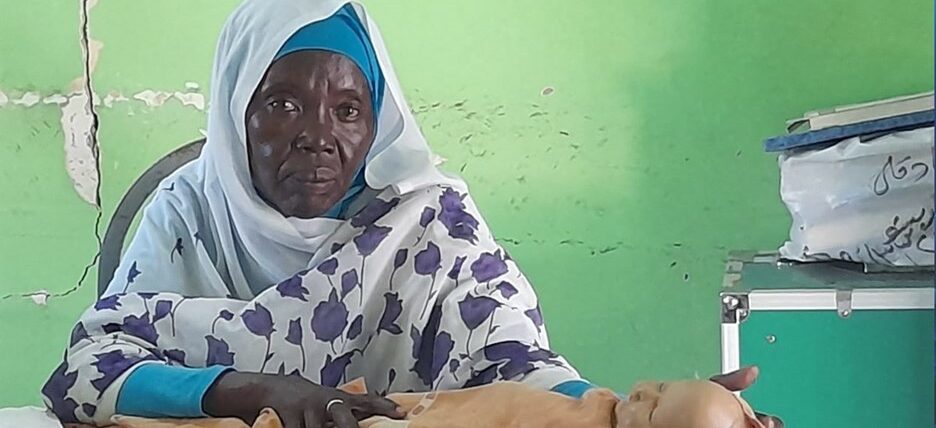Midwives Play a Key Role in Addressing Gender-Based Violence
Published on December 5, 2022

By Rania Abdalla Hassan, MNH Advisor, MOMENTUM Integrated Health Resilience
Over the course of three decades, Khamisa Fadel Bakhit Hammouda, 48, has helped some 500 women deliver babies in her home state of South Kordofan, Sudan (population: 1.1 million). She is passionate about being a midwife because it allows her to save lives and provide critical assistance to her community.
Women do not have easy lives in Sudan. The country ranks in the bottom 10 globally on the “Women, Peace, and Security Index” and is also low on the UN’s “Gender Inequality Index.” As we observe the international “16 Days of Activism Against Gender-based Violence” (25 November to 10 December), Khamisa reminds us that midwives can play active roles in building awareness about gender-based violence (GBV) and addressing it in their communities.
Recently, MOMENTUM Integrated Health Resilience and the State Kordofan Midwife Association partnered to conduct a training of midwives on emergency obstetric and neonatal care in the state capital of Kadugli. Khamisa participated in the training, using this platform to highlight the GBV that she sees in her work. She also educated her colleagues on providing confidential and holistic services to address the social, psychological, and physical consequences of GBV.
“I used the opportunity to tell all participants about the impact of GBV, the importance of working together to address the GBV issues in our areas, and how to establish confidential ways to refer survivors for services available in nearby locations,” Khamisa explained.
As a senior midwife, Khamisa was selected to serve as a clinical mentor by MOMENTUM in Sudan. The project aims to improve the availability, accessibility, and quality of maternal, newborn, and child health (MNCH) services and water, sanitation, and hygiene (WASH) in three localities of South Kordofan. Gender inequality and GBV contribute to poor MNCH and WASH in Sudan. The deteriorating economic situation in Sudan, starting in 2020, and the subsequent impact of COVID-19 increased incidents of violence, particularly domestic violence and forced marriage.
The mostly rural state, or wilayat, of South Kordofan borders South Sudan and is a mixture of flat scrublands in the north with mountain areas to the south, home to both pastoralists and farmers.
In her role, Khamisa mentors other midwives during supportive supervision visits to strengthen their knowledge and skills in evidence-based activities to improve MNCH. As GBV is detrimental to the health of all family members, awareness and coping strategies are integrated into all the project’s activities in Sudan and beyond. MOMENTUM partners with the State Kordofan Midwife Association to support Khamisa and other clinical mentors in health work and is particularly focused on women and their young children.
Many GBV survivors and their families are blamed for the violence they suffer. They are vulnerable to ongoing incidents including forced marriage and sexual and verbal abuse. MOMENTUM supports identification and proper referral of those at high risk of GBV and GBV survivors through its work at the community and health facility levels.
“I have seen and provided medical services to many gender-based violence cases and can remember the pain and sorrow of each survivor despite my best efforts to treat medical complications resulting from the awful act,” Khamisa said. “I believe there should be multidisciplinary teams to provide psychosocial support, which seems as important as physical health issues.”
For the first 15 years of her career, Khamisa worked as a skilled birth attendant at the community level. In 2009, she upgraded her skills to become a certified midwife. This qualified her to work in primary health care centers and hospitals. Five years later, she joined the Academy of Health Sciences in Omdurman as a lecturer and midwife activity manager. She brought a passion and staunch advocacy for women’s rights, including the right to live a life free from violence.
With women like Khamisa leading the way, MOMENTUM and partners can help to build relationships with institutions working to support the integration of MNCH and GBV service delivery and programming. In South Kordofan, they are establishing referral systems between communities and maternity and trauma hospitals. This will allow pregnant and postpartum GBV survivors to receive essential clinical and psychological care and ensure that they are referred to organizations providing specialized services for GBV survivors.

